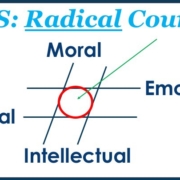Leader Development is Like Gardening
Leader Development is Like Gardening

Leader Development is Like Gardening
I was struck recently by a Harvard Business Review article called “The Feedback Fallacy” by Marcus Buckingham and Ashley Goodall. The authors rightly criticized the faddishness of so-called radical candor and radical transparency, noting that such critical feedback is often counterproductive (and may be used as an excuse for office bullying and toxic behavior). The authors also caution that performance feedback can be idiosyncratic, revealing biases of the person giving feedback.
Instead of providing critical comments, the authors argue that leaders should focus on what each person does right and encourage them to do more of it.
This approach has its merits. To be sure, recognizing when people are doing something right is good for morale and self-esteem. People are more inclined to repeat and improve upon their natural strengths than to spend time and energy improving perceived weaknesses.
At the same time, I know I get better when my speaking coach, Jan Fox, tells me to stop doing X and to do more of Y. She’s tough, but always supportive. She helps me improve what I do well while also helping me tackle my problem areas. Would you want a speaking coach who ignored your “ums” and “you knows”?
Jan’s approach is best summarized by what Strategic Leaders Academy business owner John O’Grady calls gardening – you help the person amplify their natural strong points and prune away what impedes growth and performance.
The key to doing this well is by focusing on improvement without trying to turn someone into something they’re not. No amount of feedback, for instance, will transform an extrovert into an introvert; no amount of coaching will change a detail-oriented person into a visionary. Demands that someone become a different person are counterproductive.
This is the idiosyncratic problem noted by the HBR authors: leaders tend to try to clone themselves; that is, their feedback can be aimed at making the employee become more like the supervisor. This approach only works when the employee has natural inclinations that are similar to those of the supervisor. For everyone else, the feedback is ineffective and often causes resentment. Over time, you can imagine how this damages diversity and balance in the organization.
Proper gardening – proper leader development – is a process.
It begins with knowing yourself and your employees. Knowing ourselves helps guard against idiosyncratic feedback and promotes diversity and balance. Knowing our employees helps us to provide feedback and developmental experiences that are most likely to bring out the best in each person and to prune away problem areas.
Our leader-persona assessment is a good first step to becoming a proper gardener for your employees. Knowing each employee’s leader-persona will enable you to help them be the best Operator, Reconciler, Maverick or Pioneer they can be. You will also reduce the tendency to provide morale-damaging idiosyncratic feedback.

“Our employee engagement improved from about 40% to 80%, thanks to Chris’ support.” Colleen Creighton, Executive Director, American Association of Suicidology.
Let’s discuss ways we can help you have positive outcomes, too.
Pro Tips:
- Amplify your Operators’ strengths in planning and execution. Give them the tools they need to excel at these tasks and to hold people accountable. Don’t needle them about needing to be more visionary or more outgoing or to speak more during meetings. Do, however, address behaviors that may come across as badgering or clinging to a problematic status quo.
- Amplify your Reconcilers’ strengths in teamwork and consensus-building. Empower them to iron out differences among teams or teammates. Don’t pester them about needing to be more innovative or a better planner. Do, however, address tendencies toward watering down issues, status quo bias, or running themselves ragged trying to please everyone.
- Amplify your Mavericks’ strengths in solving wicked problems. Give them important issues to address and the license to pursue new ideas and solutions. They will need Operators and Reconcilers to keep those solutions feasible and grounded in reality. Avoid criticizing them on attention to detail or not being sufficiently enthusiastic in social gatherings. Do help them address challenges associated with aloofness, impatience, and impracticality.
- Amplify your Pioneers’ innovative strengths. Encourage them to challenge the status quo and to come up with ways to push the envelope of performance. Make sure Operators are nearby to keep their ideas prioritized and practical. Avoid beating them up about attention to detail or planning. Do help them address issues associated with a lack of prioritization and overloading people in good ideas.
Follow these guidelines and be better at delivering helpful, thoughtful, and productive feedback to your team.









